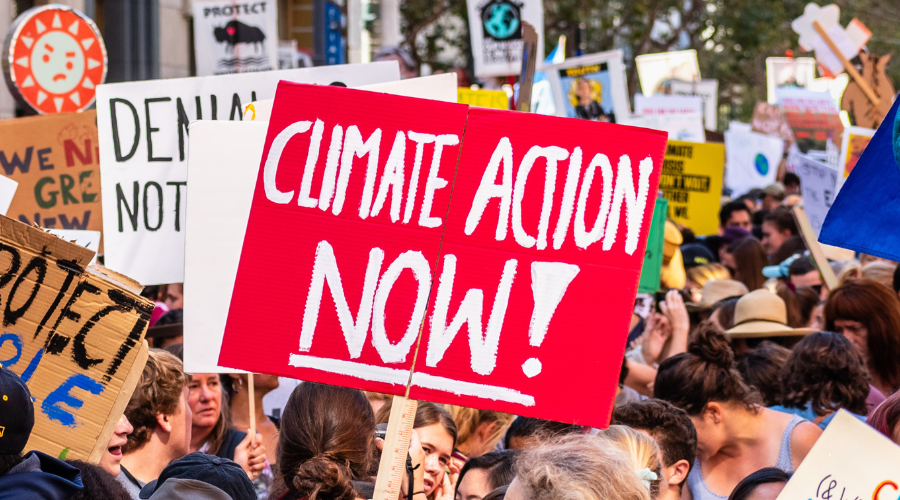
The Most Sustainable Kind of Travel? Staying at Home
28 July 2025
A “Summary for the Public”: Improving Accessibility of IPCC Findings for the General Public
28 July 2025By Guillermina Loyola PELÁEZ
Political failure to act based on the scientific consensus of climate change is an issue of literacy and agency. The dissonance between scientific and socio-political spheres results in “widespread” confusion, denial, and complacency (Sterman et al., 2015). Risk communication is challenging because the climate is a “dynamic system” that is so complex that even strong STEM backgrounds cannot fully understand its functions and interactions (ibid). The IPCC has progressed in understanding humanity’s relationship with climate change, but scale conflates how we address it. The dynamic, inter-spatial, and intertemporal aspects of climate change make the level of action required enormous. The scientific representation of this scale can “counteract initiative” through information overload, ultimately derailing sense of agency (Toivonen, 2022). An “information deficit model” guides much of climate change communication and mistakenly assumes “information and understanding” as “necessary and sufficient conditions” for widespread engagement (Moser & Dilling, 2011). Solely transmitting scientific information does not change attitudes and behaviors (Sterman et al., 2015) (see Climate Change). The misalignment between the need to act presented by climate science and our collective failure to act reveals the need for a “deeper, more consistent” understanding (Stephens & Graham, 2008).
Additionally, science and technology, often explained by their internal logic, are unexempt from socio-political analysis (Fisher & Molfino, 2016). The IPCC AR6 WG2 states climate literacy is awareness of climate change’s “anthropogenic causes and implications” and that a “lack of climate literacy at all levels” constrains adaptation. In WG3, climate literacy and education are not featured at all. The mention of climate literacy in AR6 is sparse, unfocused, and rolled into other Sustainable Development points. Regardless of definitions, climate literacy is more than “a bulk” of “facts and concepts” (Toivonen, 2022).
So, how do knowledge banks like the IPCC catalyze action? We must look beyond understanding cause and impact. Change comes from deeper values, beliefs, and a sense of self-efficacy about nature and our interconnected, constantly developing relationship with our ecosystems rather than our knowledge of the problem of climate change (Downing & Ballantyne, 2007). Knowledge of scientific processes and integrated systems thinking should also generate agency, “the ability of people to act intentionally to shape their worlds” (Nash, 2005). People are “best-served” by actively engaging with an issue that contributes their “voices and values” to a “societal response” (Moser & Dilling, 2011). While Western notions of agency often view it through the individual, it is “discursively constructed in interaction” (Toivonen, 2022). Agency facilitates the application of collective understanding.
Given that many solutions to the climate crisis already exist, climate-agency is a crucial yet overlooked and underutilized tool for the IPCC. The dissemination of resources must look beyond growing knowledge and into application. We should avoid individual focus and build communicable, cultural, and institutional capacity to take responsibility for shifting human and ecological systems. Climate agency, through collective and scaled understanding, could shift the habits of the institutions that individuals navigate daily. With a reframed idea of agency at its heart, climate literacy is essential for a deeper understanding of climate change and, ultimately, the collective will and belief to do something about it.
References
Downing, P., & Ballantyne, J. (2007). Tipping Point Or Turning Point?: Social Marketing and Climate Change. Ipsos Mori. Social Research Institute. https://books.google.fr/books?id=l-q5vQEACAAJ
Fisher, E., Pearce, W., & Molfino, E. (2016). Politics of Science and Technology (pp. 9780199756223–0192) [Data set]. Oxford University Press. https://doi.org/10.1093/obo/9780199756223-0192
IPCC, 2022: Summary for Policymakers [H.-O. Pörtner, D.C. Roberts, E.S. Poloczanska, K. Mintenbeck, M. Tignor, A. Alegría, M. Craig, S. Langsdorf, S. Löschke, V. Möller, A. Okem (eds.)]. In: Climate Change 2022: Impacts, Adaptation, and Vulnerability. Contribution of Working Group II to the Sixth Assessment Report of the Intergovernmental Panel on Climate Change [H.-O. Pörtner, D.C. Roberts, M. Tignor, E.S. Poloczanska, K. Mintenbeck, A. Alegría, M. Craig, S. Langsdorf, S. Löschke, V. Möller, A. Okem, B. Rama (eds.)]. Cambridge University Press, Cambridge, UK and New York, NY, USA, pp. 3-33, doi:10.1017/9781009325844.001. (n.d.).
IPCC, 2022: Summary for Policymakers. In: Climate Change 2022: Mitigation of Climate Change. Contribution of Working Group III to the Sixth Assessment Report of the Intergovernmental Panel on Climate Change [P.R. Shukla, J. Skea, R. Slade, A. Al Khourdajie, R. van Diemen, D. McCollum, M. Pathak, S. Some, P. Vyas, R. Fradera, M. Belkacemi, A. Hasija, G. Lisboa, S. Luz, J. Malley, (eds.)]. Cambridge University Press, Cambridge, UK and New York, NY, USA. doi: 10.1017/9781009157926.001
Kolenatý, M., Kroufek, R., & Činčera, J. (2022). What Triggers Climate Action: The Impact of a Climate Change Education Program on Students’ Climate Literacy and Their Willingness to Act. Sustainability, 14(16), 10365. https://doi.org/10.3390/su141610365
Moser, S. C., & Dilling, L. (2011). Communicating Climate Change: Closing the Science‐Action Gap. Oxford University Press. https://doi.org/10.1093/oxfordhb/9780199566600.003.0011
Nash, L. (2005). The agency of nature or the nature of agency?. Environmental History, 10(1), 67-69.
Stephens, J. C., & Graham, A. C. (2008). Climate Science to Citizen Action: Energizing Nonformal Climate Science Education. Eos, Transactions American Geophysical Union, 89(22), 204. https://doi.org/10.1029/2008EO220010
Sterman, J., Franck, T., Fiddaman, T., Jones, A., McCauley, S., Rice, P., Sawin, E., Siegel, L., & Rooney-Varga, J. N. (2015). WORLD CLIMATE: A Role-Play Simulation of Climate Negotiations. Simulation & Gaming, 46(3–4), 348–382. https://doi.org/10.1177/1046878113514935
Toivonen, H. (2022). Themes of climate change agency: A qualitative study on how people construct agency in relation to climate change. Humanities and Social Sciences Communications, 9(1), 102. https://doi.org/10.1057/s41599-022-01111-w


